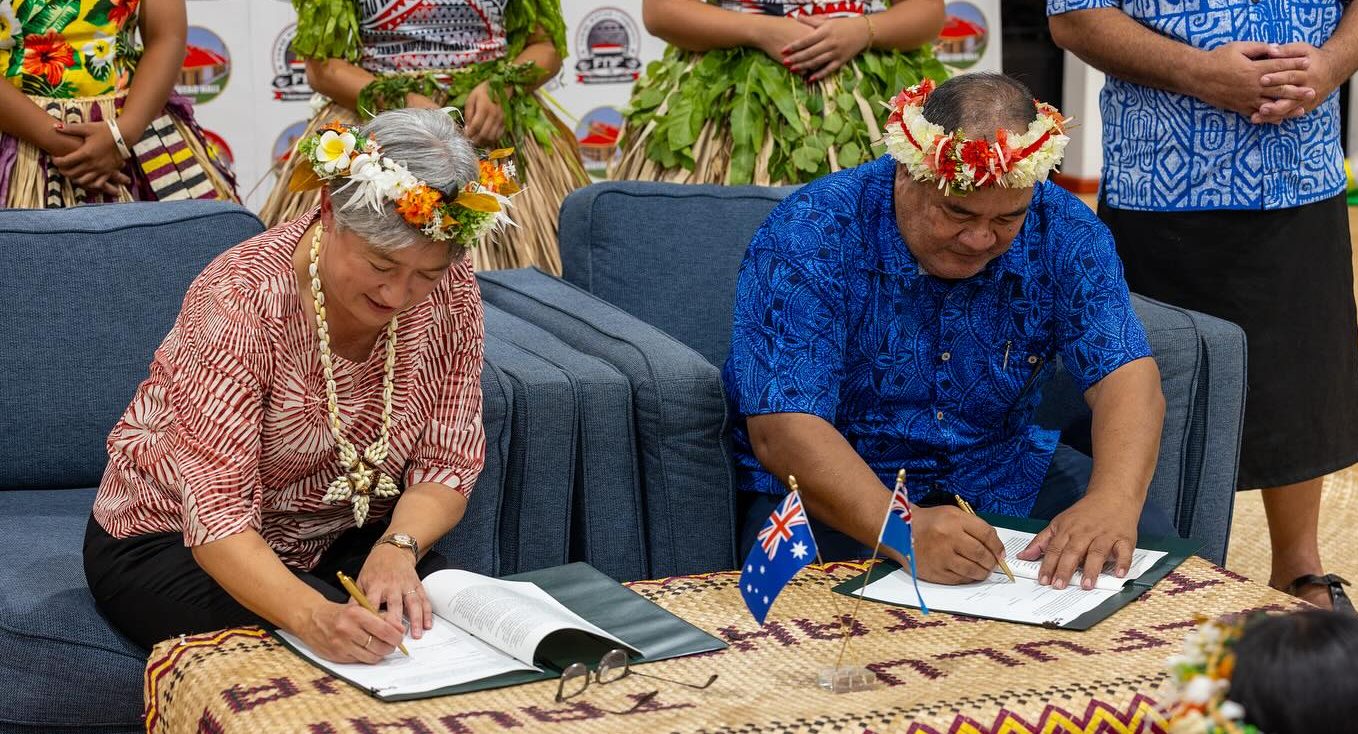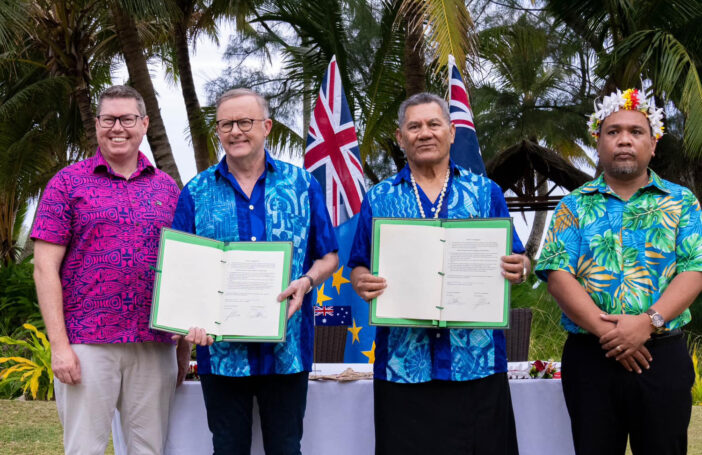Further details recently released in relation to the Australia-Tuvalu Falepili Union treaty reveal just what a good deal Tuvalu has obtained.
We already knew that the treaty would give 280 special visas to Tuvaluans every year, and that these visas would not be tied to any work requirement. We now, through the treaty’s explanatory memorandum, have the following information:
- The visas will be allocated by ballot, and will give the holders permanent residency; these features were both expected, but are now confirmed.
- There is no maximum age requirement: applicants just have to be 18 or older.
- There are no disability bars.
- Minimum residence periods for access to a number of benefits and services will be waived.
- There is no risk of forfeiture of the right to permanent residency from being outside of the country. Rather, the “[v]isas would provide for indefinite permanent residency, with freedom for unlimited travel to and from Australia”.
Some of this is quite remarkable, and some unprecedented. (This matrix provides details of the benefits and rights that go with various visas and with citizenship.) The waiving of minimum residence periods is unusual, but is a feature of the new Pacific Engagement Visa. Every other visa, except the one that allows New Zealanders to move to Australia, discriminates against people with a disability. And every other permanent residency visa has a “use it or lose it” provision. You can stay in Australia for as long as you like as a permanent resident, but if you leave the country, and stay away too long, you may not be allowed back in, at least not after five years since the granting of the visa.
An earlier blog expressed concern that Tuvaluans would move to Australia for five years simply in order to gain citizenship and/or meet minimum residency requirements. Now, however, that incentive has been much diluted, in particular because of this fact that a Falepili visa will give its holder the right to enter Australia any time no matter how long they have been out of the country.
Earlier estimates of the number of Tuvaluans (2,200 out of a population of 11,300) who want to migrate to Australia are no longer relevant when considering demand for the Falepili visa. Now I would expect everyone to apply, if only to obtain the option to travel to Australia if and when the time is right.
Citizens of Cook Islands are holders of New Zealand passports, and one wonders whether it wouldn’t have been simpler to offer Australian passports to Tuvalu citizens. Perhaps that is what we will offer Nauru (the fact that they have switched recognition from Taiwan to the People’s Republic of China is an added obstacle but not an insurmountable one). Or perhaps in a few years, we will simply issue the Falepili visa to any Tuvaluan who requests it and drop the annual cap of 280.
Tuvalu and Australia have not had a particularly close relationship in the past. Tuvalu still does not have a high commission in Australia — its embassies or high commissions are in Europe, Fiji, New Zealand, Taiwan and the US — and has only now, as part of the new deal, agreed to open one in Canberra. Australia only opened its high commission in Tuvalu in 2019.
Now, however, of all the countries in the world, Tuvalu has the second closest migration relationship with Australia after New Zealand. And in some ways, Tuvalu’s migration relationship with Australia is actually closer than New Zealand’s. There is no cap on the number of New Zealanders eligible to move to Australia every year. But, for example, no matter how long New Zealanders stay in Australia, unless they become citizens or permanent residents, they cannot join the National Disability Insurance Scheme: Tuvaluans will be able to from day one.
China has changed everything, enabling Tuvalu to transform its migration relationship with Australia in return for the security concessions Australia obtained. The Falepili treaty will be of enormous benefit to Tuvaluans, and, for Australia, has set a new and welcome benchmark for its deep, bilateral integration with the Pacific.





Is there any clarity on which authority will administer the ballot and registration for the ballot?
Australia will run the ballot through Department of Home Affairs as it does for the PEV. I’m not sure when the ballot will open though.